When homeschooling with Charlotte Mason’s philosophy, there are many book lists for studying and experiencing different topics. These books, referred to as “living books,” contain depth and content that allow students to study subjects through engaging, insightful stories. But sometimes, students express boredom or disinterest in a book, and parents may feel the urge to substitute it with something they think will be easier or more engaging. However, I don’t believe substitutions are always the answer.
Perseverance Over Substitution: A Real-Life Example
Take, for instance, when my 5th grader started reading “Bully For You, Teddy Roosevelt” by Jean Fritz. After the 20-minute reading timer went off, she came over to give me her narration. The first words out of her mouth were, “Mom, this book is boring.”
My response? “Oh, ok. I’ll bet you’ll be finished with this book by the end of the week. Then you’ll move on to another one. In the meantime, I know you are going to learn so many interesting things about Teddy Roosevelt. What did you learn today?”
By the end of the week, she came running to me while I was making lunch, “Mom! Did you know Teddy Roosevelt was a cowboy?” My response: “No way. That is so cool!”
After her narration, I joked, “Too bad that book was boring.” She rolled her eyes and said, “Ok, mom. It wasn’t that bad. But it wasn’t the most interesting book I’ve ever read.”
What My 10-Year-Old Learned
From this experience, my daughter learned several important lessons:
- Books aren’t always going to be interesting.
- If we read a book we don’t like, we can still learn something valuable.
- Books don’t last forever; a new book will come when we’re finished.
- Teddy Roosevelt was a fascinating person.
But here’s what she did not learn:
- We must love and enjoy every book in order to learn from it.
- If I don’t like a book and complain, my mom will find a different one.
- There’s no point in persevering with something that’s difficult.
Charlotte Mason’s Wisdom on Perseverance
Charlotte Mason herself had much to say on the subject of books, enjoyment, and perseverance:
“We need not ask what the girl or boy likes. She very often likes the twaddle of goody-goody story books, he likes condiments, highly-spiced tales of adventure. We are all capable of liking mental food of a poor quality and a titillating nature; and possibly such food is good for us when our minds are in need of an elbow-chair; but our spiritual life is sustained on other stuff…” (Vol. 3, p. 168)
In this passage, Charlotte Mason stresses that while children may often be drawn to the shallow or easy options, their intellectual and spiritual growth is nurtured by deeper, more substantial food—the “living ideas” found in more challenging books. We must resist the notion that every book must be pleasurable. Instead, our role as parents is to set the feast and allow children to digest what they will. Even if they don’t enjoy the book in the moment, they are still absorbing valuable knowledge and forming connections.
The Difficulty of Selecting the Right Book
Another common concern among homeschooling parents is that certain books may be too challenging for their children. Charlotte Mason directly addresses this in Volume 6 of her works:
“The completeness with which hundreds of children reject the wrong book is a curious and instructive experience, not less so than the avidity and joy with which they drain the right book to the dregs…children’s requirements in the matter seem to be quantity, quality and variety: but the question of books is one of much delicacy and difficulty…Even after 50 years, the PNEU made mistakes when choosing the difficulty level of a book.” (Vol. 6, p. 248)
In her words, the selection of a book is a delicate task, and while one child may love a particular book, another may not. However, the rightness of a book isn’t necessarily judged by a child’s enjoyment but by whether they can process and engage with it at a deeper level.
How to Support Your Child When a Book is Challenging
If your child is struggling with a book or finding it difficult to comprehend, there are several strategies you can use to help them work through it:
- Shorten the Reading Assignment – Break the book into smaller, more digestible sections to avoid overwhelming your child.
- Narrate After Every Page – Instead of narrating after an entire chapter, try narrating smaller chunks of text. This will allow your child to process and retain information more easily.
- Become a Coach – Sit with your child as they read, offering guidance and encouragement as they work through difficult sections. Understand where they struggle and help them push through it.
- Encourage Active Learning – Allow children to underline difficult words, draw pictures, or act out scenes to better understand the material.
- Use Audiobooks – If your child struggles with comprehension or fatigue from reading, audiobooks can provide a different way to process the material.
Why You Should Resist Resorting to Textbooks
Textbooks may seem easier for students to digest, but they are often predigested knowledge—like “baby food” for minds. As Charlotte Mason emphasizes, living books encourage children to search for their own answers, make connections, and engage deeply with the material. This is essential for self-education, a foundational principle of the Charlotte Mason approach.
Trust your child’s ability to handle challenging material. Help them through the difficult sections and encourage their perseverance. By doing so, you are helping them develop vital skills that will benefit them throughout their lives.
Conclusion: Encourage Growth Through Challenge
When your child expresses frustration with a book or finds it boring, don’t be quick to substitute it with an easier, more “fun” option. Instead, see it as an opportunity for them to push through discomfort, strengthen their cognitive muscles, and gain valuable skills. Perseverance and engagement with challenging material will lead to greater growth, deeper learning, and a more profound appreciation for the process of self-education.
Let your child know that difficulty isn’t a reason to quit—it’s simply a sign that they are growing and learning in ways that will serve them well into the future.
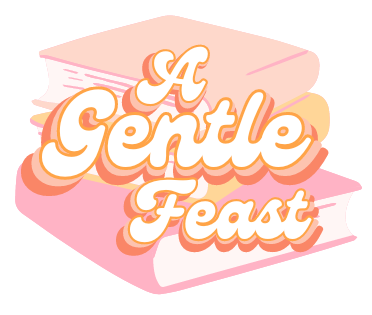


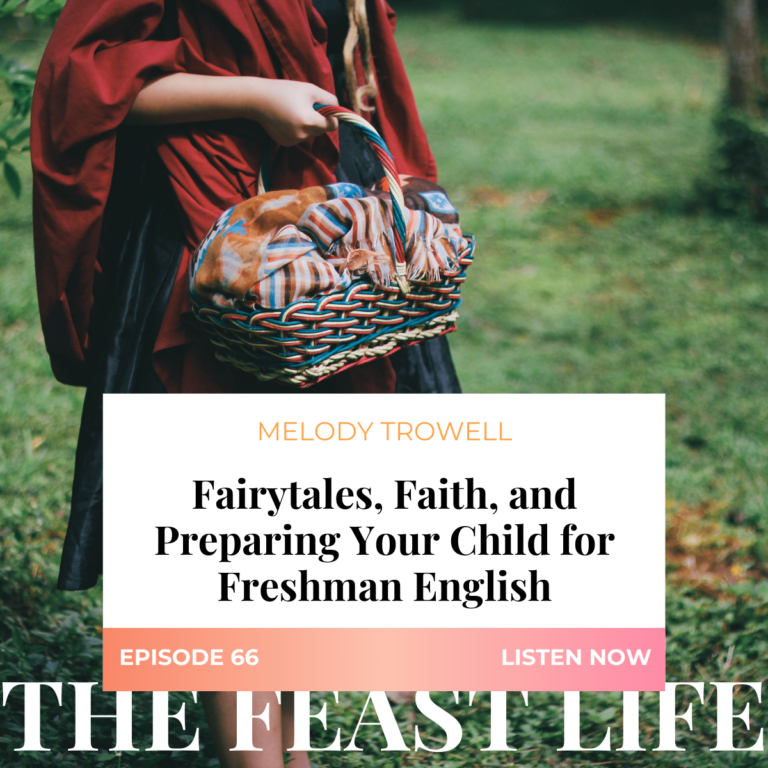

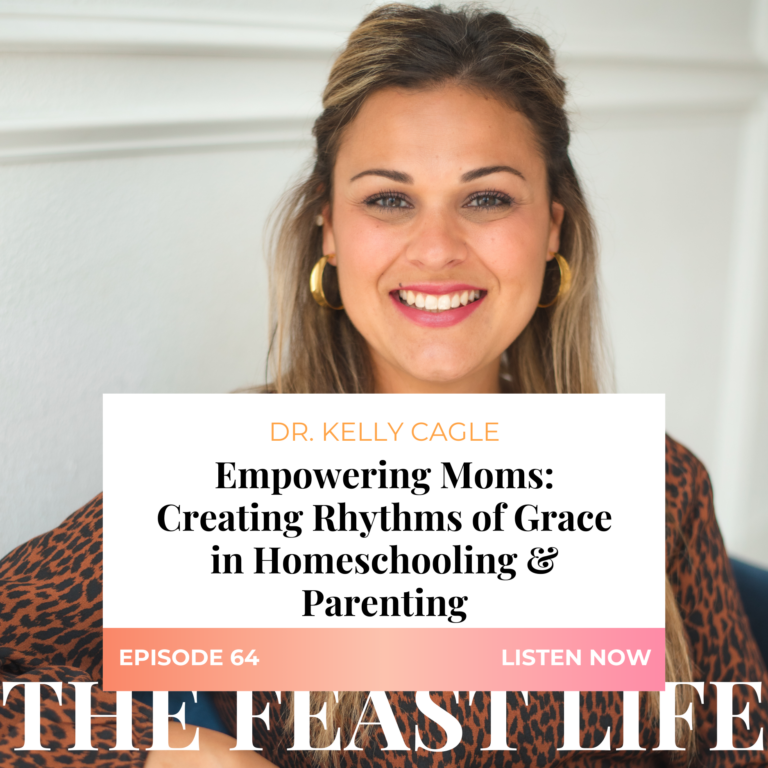
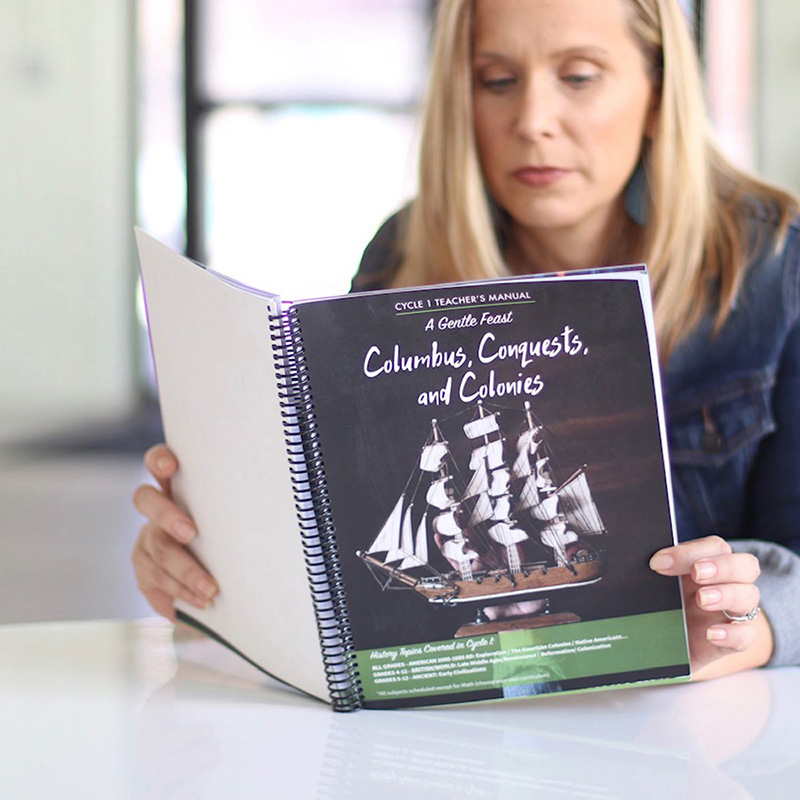



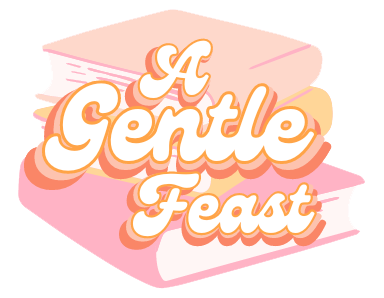
2 Comments
How would you suggest encouraging stretching and growth when you get pushback in a more exercise based class, such as handwriting? My daughter in form 1 (2nd grade) loathes handwriting and pushes back on it a lot!
This is obviously not from A Gentle Feast, but I’ve had the same problem and have found requiring smaller amounts gives them a feeling of success and as they are more used to doing the work and more capable, I increase the amount they do. I usually just start with, “all you have to do today is write this one word the best you can, then you’re done”. I might have to sit there and oversee the whole event and help them evaluate what they’re best means or looks like and require a redo if theyre lazy, but usually they’re so pleased with so little to do they hop right on it and are done quickly. I usually build a sentence a word at a time for a week or two, then go to 2 words, then a few more and continue increasing until the child is doing the amount I desire. I also usually don’t use the curriculum at this point but pick my own sentences about something they are interested in, just for this initial learning period. It feels ridiculous but so far it has been very effective with my 3 kids. Good luck with your kiddo!